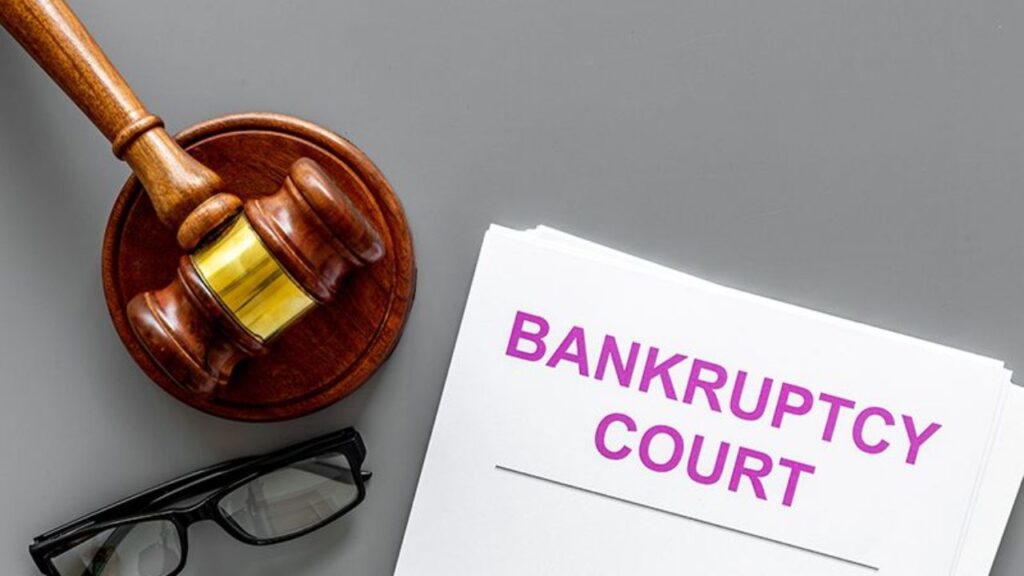Financial distress is a challenging situation that many businesses find themselves in at some point. It is important for business owners to understand the concept of financial distress and recognize the signs that their business might be in trouble. In this article, we will explore the various options available to businesses facing financial distress from a legal perspective, as well as the role of legal counsel in such situations. Additionally, we will discuss long-term strategies that businesses can implement to overcome financial distress and ensure their future success.
Understanding Financial Distress in Businesses
Defining Financial Distress
Financial distress refers to a state in which a business is unable to meet its financial obligations. This can include difficulties in paying off debts, meeting operational expenses, or maintaining profitability. It is a critical situation that requires prompt action to avoid further deterioration of the business’s financial health.
When a business finds itself in financial crisis, it is important to understand the underlying causes and take appropriate measures to address them and this is what do insolvency lawyers do for your business. Financial distress can have severe consequences if left unattended, such as bankruptcy, loss of assets, or even closure of the business.
In order to effectively manage financial crisis, business owners must have a clear understanding of their company’s financial position. This includes analyzing the balance sheet, income statement, and cash flow statement to identify areas of concern and potential solutions. Learn more when and why you might need an insolvency lawyer.

Common Causes of Financial Distress
Financial distress can arise from various factors, including economic downturns, poor financial management, excessive debt burdens, inadequate cash flow, or unexpected events such as lawsuits or natural disasters. It is crucial for business owners to identify the root causes of their financial troubles to effectively address them.
Economic downturns can significantly impact a business’s financial health. During a recession or economic crisis, consumer spending tends to decrease, leading to lower revenues for businesses. This can create a domino effect, causing cash flow problems and difficulty in meeting financial obligations.
Poor financial management is another common cause of financial distress. This can include inadequate budgeting, ineffective cost control measures, or a lack of financial planning. Without proper financial management practices in place, businesses may struggle to generate profits and maintain a healthy financial position.
Excessive debt burdens can also push a business into financial distress. Taking on too much debt or relying heavily on credit can lead to high interest payments and a strain on cash flow. If a business is unable to meet its debt obligations, it can quickly spiral into a dire financial situation.
Furthermore, unexpected events such as lawsuits or natural disasters can have a devastating impact on a business’s financial stability. Legal battles can result in significant legal fees and damages, while natural disasters can cause property damage and disrupt operations. These unforeseen circumstances can put immense pressure on a business’s finances, making it difficult to recover.
Signs Your Business Might Be in Financial Distress
There are several warning signs that indicate a business is in financial distress. These include declining revenues, increasing expenses, delayed payments to suppliers or employees, frequent cash flow problems, decreased profitability, or mounting debt. Recognizing these signs early on can help business owners take the necessary steps to overcome financial distress.
Declining revenues can be a clear indicator that a business is facing financial difficulties. If sales consistently decrease over a period of time, it may be a sign that the business is struggling to attract customers or retain existing ones.
Increasing expenses without a corresponding increase in revenues can also be a red flag. This can occur when businesses fail to control costs or experience unexpected increases in expenses, such as rising rent or utility bills.
Delayed payments to suppliers or employees can indicate cash flow problems. If a business is consistently late in paying its bills or employees, it may be a sign that it is struggling to generate enough cash to meet its financial obligations.
Decreased profitability is another warning sign of financial distress. If a business is consistently operating at a loss or experiencing a decline in profit margins, it may be an indication of underlying financial issues that need to be addressed.
Mounting debt can also be a cause for concern. If a business is accumulating debt without a clear plan to repay it, it can quickly lead to financial distress. High levels of debt can restrict a business’s ability to invest in growth opportunities or make necessary payments.
Recognizing these signs early on and taking proactive measures can help businesses navigate through financial distress and regain financial stability. Seeking professional advice from financial experts or consultants can also provide valuable insights and guidance in managing financial difficulties.
Legal Options for Businesses in Financial Distress
Financial distress can be a challenging situation for businesses, but there are several legal options available to help them navigate through these difficult times. In addition to the commonly known options such as debt restructuring, bankruptcy, and out of court settlements, there are other strategies that businesses can consider to regain financial stability.
Debt Restructuring
Debt restructuring is a popular option for businesses facing financial distress. It involves renegotiating the terms of existing debts to make them more manageable. This can include extending repayment periods, reducing interest rates, or even forgiving a portion of the debt. By restructuring their debts, businesses can alleviate the immediate financial pressure and create a more sustainable repayment plan.
Furthermore, debt restructuring can provide businesses with an opportunity to improve their cash flow and regain financial stability. By reducing their debt burden, businesses can allocate more resources towards operational expenses, investments, and growth initiatives. This can ultimately lead to a more sustainable and profitable future for the business.
Bankruptcy: Chapter 11 vs Chapter 7
Bankruptcy is a legal process that businesses can utilize when they are unable to meet their financial obligations. There are two primary types of bankruptcy for businesses: Chapter 11 and Chapter 7.
Chapter 11 bankruptcy allows businesses to reorganize their operations and develop a plan to repay their debts gradually. This option provides businesses with an opportunity to continue their operations while they work towards financial recovery. During the Chapter 11 process, businesses can negotiate with creditors, reduce costs, and streamline their operations to improve their financial position.
On the other hand, Chapter 7 bankruptcy involves the complete cessation of business activities. In this scenario, the business’s assets are liquidated, and the proceeds are distributed to creditors. While Chapter 7 may seem like a drastic option, it can provide a fresh start for businesses that are unable to recover from their financial distress.

Out of Court Settlements
While bankruptcy is a formal legal process, businesses facing financial distress can also explore out of court settlements. This option involves negotiating with creditors outside of the court system to reach an agreement on repayment terms, debt forgiveness, or other arrangements that provide relief to the business.
Out of court settlements can be a more cost-effective and efficient option for businesses seeking to resolve their financial difficulties. By avoiding the formalities and expenses associated with bankruptcy, businesses can save time and resources. Additionally, out of court settlements allow businesses to maintain more control over their operations and financial future.
It is important for businesses to carefully consider their options and seek professional advice when facing financial distress. Each situation is unique, and the best course of action will depend on various factors such as the severity of the financial distress, the business’s long-term prospects, and the preferences of the stakeholders involved.
In conclusion, businesses in financial distress have several legal options available to them. Whether it is debt restructuring, bankruptcy, or out of court settlements, each option has its own advantages and considerations. By understanding these options and seeking appropriate guidance, businesses can navigate through their financial challenges and work towards a brighter future.
The Role of Legal Counsel in Financial Distress
Financial distress can be a challenging and overwhelming situation for any business owner. When faced with such difficulties, seeking legal advice becomes crucial. Consulting with a knowledgeable attorney can provide valuable insights and guidance to navigate through the complexities of financial distress.
When to Seek Legal Advice
Recognizing the signs of financial distress is the first step towards seeking legal advice. These signs may include declining revenues, mounting debts, cash flow problems, or legal actions taken by creditors. It is important for business owners to be proactive and address these issues as soon as they arise.
By engaging legal counsel early on, business owners can gain a comprehensive understanding of their financial situation. Attorneys specializing in financial distress can assess the severity of the problem, explore available options, and develop a strategic plan to address the challenges at hand.
Moreover, early engagement with legal counsel can significantly increase the likelihood of a successful resolution. By taking prompt action, business owners can avoid further complications and potentially save their businesses from complete financial collapse.
Choosing the Right Legal Counsel
When facing financial distress, selecting the right legal counsel is of utmost importance. It is essential to find an attorney with expertise in bankruptcy law, debt restructuring, and related areas. Such an attorney can provide the necessary guidance and support throughout the entire process.
Experience matters when it comes to dealing with financial distress. An attorney who has successfully handled similar cases in the past will have a deep understanding of the legal landscape and the strategies that work best in different situations.
Additionally, a qualified attorney can help businesses navigate through complex legal processes, negotiate with creditors, and develop a comprehensive plan to restructure debts and restore financial stability. They can also provide expert advice on potential alternatives to bankruptcy, such as debt consolidation or asset sales.
Furthermore, a skilled attorney can act as an advocate on behalf of the business, representing their interests and ensuring that their rights are protected throughout the financial distress resolution.
Legal Responsibilities of Business Owners
In times of financial distress, business owners must understand and fulfill their legal responsibilities. Acting in the best interest of the business and its stakeholders is paramount. This includes making informed decisions, prioritizing the repayment of debts, and taking necessary steps to preserve the value of the business.
Business owners must also fulfill their obligations to creditors. This involves communicating openly and honestly with creditors, providing accurate financial information, and making efforts to negotiate repayment terms that are feasible for both parties.
Compliance with relevant laws and regulations is another crucial aspect of a business owner’s legal responsibilities. Failing to meet these obligations can have serious legal consequences, including potential lawsuits, fines, or even personal liability for business debts.
Therefore, it is essential for business owners to seek legal counsel to ensure they are fully aware of their legal responsibilities and to navigate the complex legal landscape during times of financial distress.
Long-term Strategies to Overcome Financial Distress
Financial Planning and Management
Implementing effective financial planning and management practices is crucial for businesses to overcome financial distress and ensure future success. This includes developing realistic budgets, monitoring cash flow, reducing unnecessary expenses, and seeking opportunities to increase profitability. Regular financial assessments and adjustments are vital to maintain financial stability.
Risk Management Strategies
To prevent future financial distress, businesses should adopt proactive risk management strategies. This includes diversifying revenue streams, maintaining an emergency fund, conducting thorough financial analyses before making significant investments, and staying informed about industry trends and potential risks. By anticipating and managing risks effectively, businesses can minimize the likelihood of facing financial distress in the future.
Business Model Reevaluation
Financial distress can often be an indication of underlying flaws in a business’s model. Therefore, it is crucial for businesses to reevaluate their business models and make necessary adjustments. This may involve analyzing market demand, exploring new product or service offerings, considering partnerships or collaborations, or even restructuring the entire business. Adapting to changing market conditions and consumer needs can help businesses overcome financial distress and thrive in the long run.In conclusion, financial distress is a significant challenge that businesses can face. However, by understanding the concept of financial distress and recognizing the signs, businesses can take appropriate legal steps to overcome these challenges. The role of legal counsel is crucial in guiding businesses through legal processes and providing expert advice. Implementing long-term strategies such as effective financial planning, risk management, and business model reevaluation can help businesses recover from financial distress and ensure their future success.











